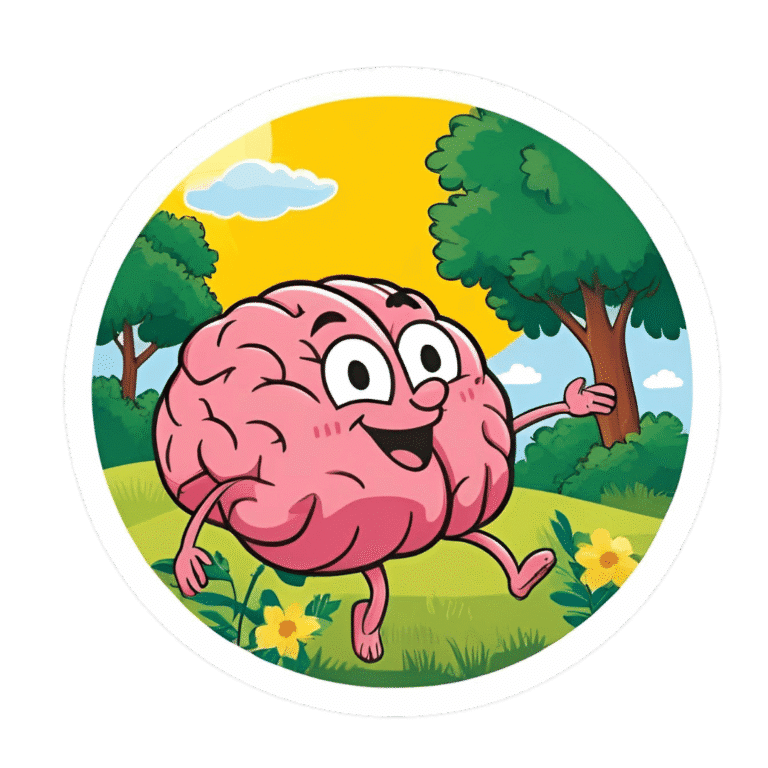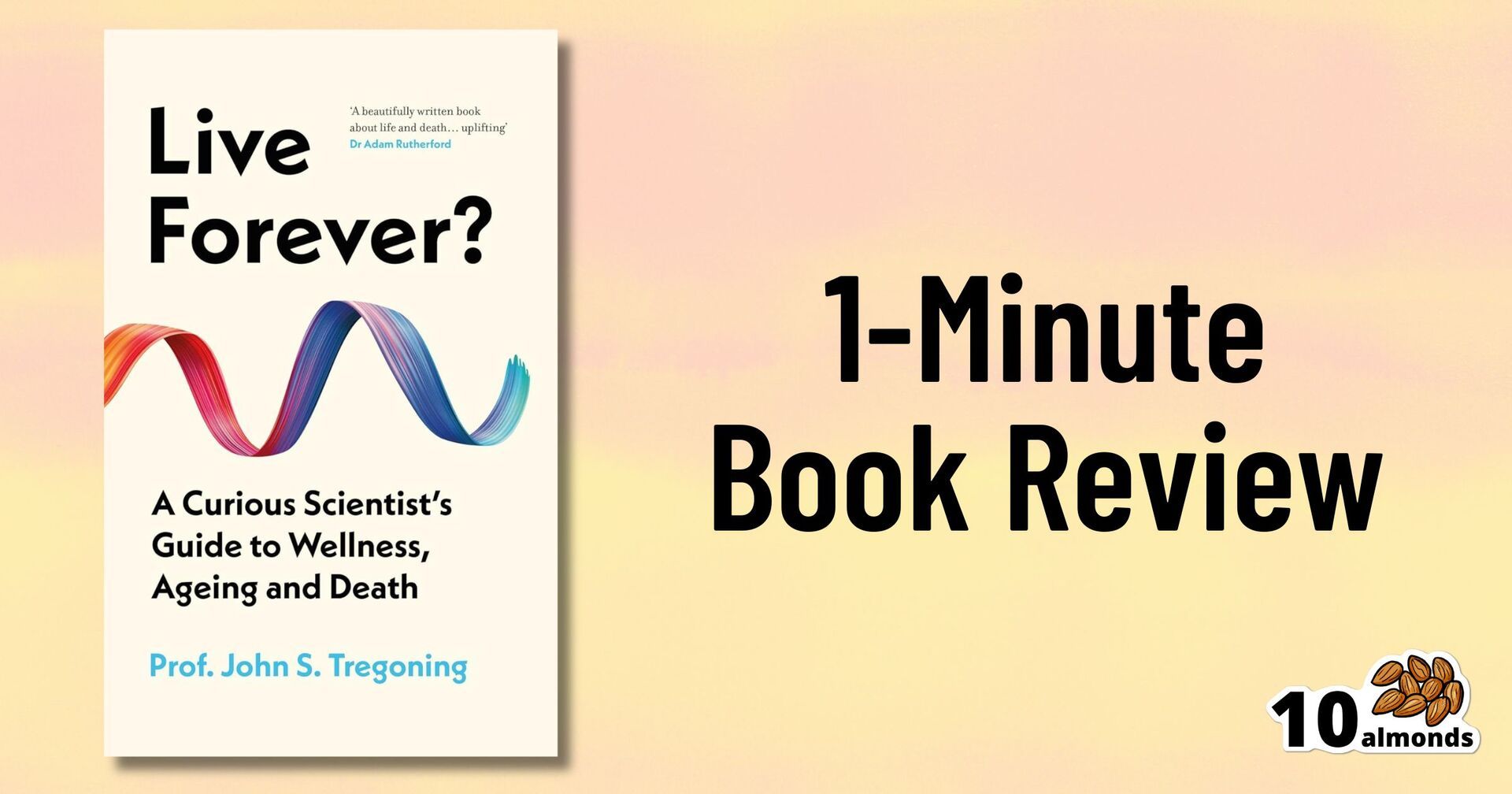Happy Thursday 👋
When a headline says something kills cancer cells in a Petri dish, it’s important to remember that so does a handgun. So, be sure to look for “selectively kills cancer cells” or “kills cancer cells while sparing healthy ones” or suchlike.
For some examples that pass this test, see: Top 8 Fruits That Prevent & Kill Cancer
In today’s email we cover alcohol vs THC, nutrition-tracking hacks, and a guide to understanding how scientific evidence works (and how it doesn’t).
Do you sometimes feel bloated, sluggish, sickly, and fatigued, especially after eating? This is common, but it doesn’t have to be that way. Good news: there is, unlikely as it sounds, a “chocolate trick” to fix this ← yes, really. Better news: today’s sponsor Bright Naturals has an even better solution (using the unique powers of sulforaphane), that not only fixes that problem, but at the same time increases your metabolism to make you burn fat off sustainably, too. Click here to learn all about it 😎
Today’s Main Feature
Recommended Reading
What Actually Is Hyaluronic Acid?
…and is it ok for kids and teens to use this common skincare ingredient?
Serotonin For More Than Just Happiness
Like most neurotransmitters, serotonin is important for a number of different jobs in our brain:
Watch and Learn
Fix Most Of Your Nutrition-Tracking Problems With These Few Hacks
Are you weighing everything? And, do you really need to?
Prefer text? The above video will take you to a 10almonds page with a text overview, as well as the video!
Our Sponsors Make This Publication Possible
Leading researchers at Harvard and Johns Hopkins University say:
Your liver is your body’s #1 fat-burning engine.
A healthy liver helps you burn fat naturally and effortlessly.
But when your liver’s clogged and overworked…
Your metabolism slows to a crawl.
It can also lead to stubborn deep fat, low energy, brain fog, bloated belly, and constipation.
Thankfully, there’s a simple fix…
A world-leading nutritionist – Kinsey Jackson, MS, CN, CFMP – has uncovered a brand-new “chocolate trick” that helps regenerate your liver back to health.
Helping you flatten your tummy, fix your digestion, and feel sharper and more energetic than ever before!
Please do visit our sponsors—they help keep 10almonds free
This Or That?
Vote on Which is Healthier
Yesterday we asked you to choose between kiwi vs peach—both top-tier options, but there was a clear winner and we picked the kiwi (click here to read about why), as did 77% of you!
Now for today’s choice:
Click on whichever you think is better for you!
Bonus (Sponsored) Recommendation
10almonds tip: the first thing you’ll see on today’s sponsor’s page is a video; if you don’t love videos, it’ll offer you a text version instead. Click that, and then you’ll get everything on one page in text form 😉
One-Minute Book Review
Live Forever?: A Curious Scientist's Guide to Wellness, Ageing and Death – by Dr. John Tregoning
The author, a research scientist, investigates our mortality, and what can (and can’t) be done about it.
His conclusions are mostly grim and fatalistic (have a good diet and exercise, don’t drink or smoke, get your vaccines, and anything else is merely changing what you’ll die of), but the real value of the book lies in how he gets there.
Dr. Tregoning is an immunologist, and as such he places the greatest stock in epidemiological studies, which can and if reasonable should be followed up with randomized controlled trials (RCTs). Why the “if reasonable”, you ask?
He gives the example of a study that was undertaken precisely to illustrate this: volunteers were sought for a RCT to test the efficacy of using a parachute vs using a placebo backpack. However, given that the intervention group (parachute) is a well-established lifesaver, and the control group (placebo backpack) means a wildly unethical risk of letting half the study population die, this study being performed as an RCT is of course absurd.
The reader who understands how that is a problem, will understand how asking for RCTs for many kinds of “...or the patient will suffer horribly and/or die” medical interventions is also the same problem.
That illustrative parachute study was conducted, by the way; however for safety reasons (acknowledged in the “limitations” section of the paper) they used a stationary aircraft on the ground, and concluded “the results may be cautiously extrapolated to high-altitude use” (highlighting another problem—that experimental conditions often cannot usefully replicate real-world conditions).
The point here, and indeed the main thesis of the book, is: examine the evidence for yourself and do not just trust headlines, including:
when there headlines say there is evidence (does the evidence really say what the headlines are saying?)
when the headlines are saying there is not enough evidence (are they asking for placebo-controlled trials for something that cannot be ethically placebo-controlled—like vaccines, HRT, cancer drugs, or surgeries, all of which are better suited to intervention studies without a control group?)
The style is—for all the grim fatalism we mentioned—entertaining and personable, making this bleak topic an engaging and even enjoyable read. There’s an extensive bibliography, and separately, many per-chapter footnotes.
Bottom line: will this book help you to live longer? If you’re currently on-the-fence about vaccines (in which case, maybe it’ll motivate you to get them as appropriate), then yes, quite possibly. Otherwise, probably not. However, what it will do is two things: 1) entertain you 2) give you a great insight into how to understand science itself, so as to not be at the mercy of headlines. For those reasons, we recommend this book.
Penny For Your Thoughts?
What did you think of today's newsletter?
Wishing you the very best of health every day, in every way,
The 10almonds Team








